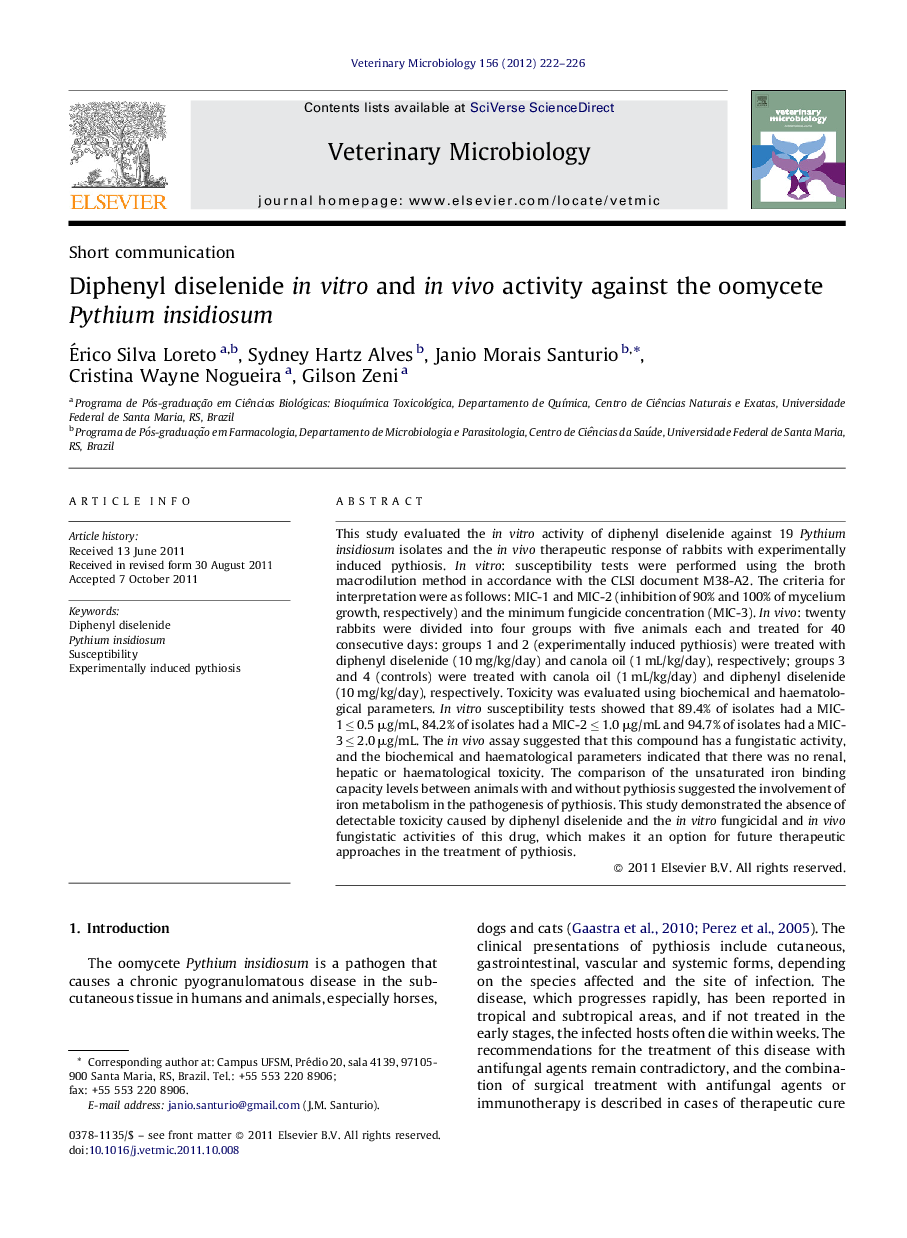| Article ID | Journal | Published Year | Pages | File Type |
|---|---|---|---|---|
| 2467308 | Veterinary Microbiology | 2012 | 5 Pages |
This study evaluated the in vitro activity of diphenyl diselenide against 19 Pythium insidiosum isolates and the in vivo therapeutic response of rabbits with experimentally induced pythiosis. In vitro: susceptibility tests were performed using the broth macrodilution method in accordance with the CLSI document M38-A2. The criteria for interpretation were as follows: MIC-1 and MIC-2 (inhibition of 90% and 100% of mycelium growth, respectively) and the minimum fungicide concentration (MIC-3). In vivo: twenty rabbits were divided into four groups with five animals each and treated for 40 consecutive days: groups 1 and 2 (experimentally induced pythiosis) were treated with diphenyl diselenide (10 mg/kg/day) and canola oil (1 mL/kg/day), respectively; groups 3 and 4 (controls) were treated with canola oil (1 mL/kg/day) and diphenyl diselenide (10 mg/kg/day), respectively. Toxicity was evaluated using biochemical and haematological parameters. In vitro susceptibility tests showed that 89.4% of isolates had a MIC-1 ≤ 0.5 μg/mL, 84.2% of isolates had a MIC-2 ≤ 1.0 μg/mL and 94.7% of isolates had a MIC-3 ≤ 2.0 μg/mL. The in vivo assay suggested that this compound has a fungistatic activity, and the biochemical and haematological parameters indicated that there was no renal, hepatic or haematological toxicity. The comparison of the unsaturated iron binding capacity levels between animals with and without pythiosis suggested the involvement of iron metabolism in the pathogenesis of pythiosis. This study demonstrated the absence of detectable toxicity caused by diphenyl diselenide and the in vitro fungicidal and in vivo fungistatic activities of this drug, which makes it an option for future therapeutic approaches in the treatment of pythiosis.
